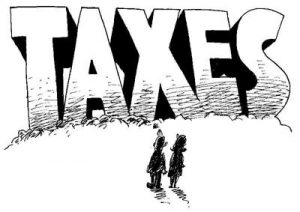European Commission Opposes Excise Tax on E-Cigarettes and Heat-Not-Burn Tobacco Products, for Now
EU diplomats have been expressing their desire to set excise taxes for electronic cigarettes and heat-not-burn tobacco products ever since 2016, when they unanimously agreed to call on the European Commission to come up with a proposal on the best way to tax these products. However, in a recent report to the EU Council, the Commission opposed the harmonized taxation of e-cigarettes and heat-not-burn tobacco products until more information becomes available.
 Back in 2016, the European Commission warned that failure to harmonize excise duties for electronic cigarettes could have “significant budget implications” for EU countries, leading to national taxes being raised, which could threaten the internal markets in the long run (see the mind-boggling case of Italy).
Back in 2016, the European Commission warned that failure to harmonize excise duties for electronic cigarettes could have “significant budget implications” for EU countries, leading to national taxes being raised, which could threaten the internal markets in the long run (see the mind-boggling case of Italy).
Some member countries called for a minimum excise tax on electronic cigarettes to be set at “the highest common denominator”, while others expressed their desire to have vaping products taxed the same as tobacco cigarettes. The latter proposal was met with criticism by both anti-tobacco campaigners and a number of EU officials, who believed that setting excise duties for e-cigarettes to the level of tobacco cigarettes made “no sense in terms of health policy”.
After being called upon to come up with a proposal on the issue of harmonizing excise duties for e-cigarettes and heat-not-burn tobacco products, two years ago, the European Commission finally made its decision known this month. In a report to the EU Council, the Commission states that, due to lack of sufficient information, both in terms of health effects and the evolution of the market, no excise tax should be imposed on either e-cigarettes or novel tobacco products, for the time being.
“The study found that the information available on e-cigarettes was limited and it was consequently difficult to draw conclusions on how the market will evolve in the future. Moreover, opinions on possible health effects of e-cigarettes and, consequently, the appropriate tax treatment largely diverge,” the newly published report states. “Therefore, from a health perspective a cautious approach should be adopted towards a potential harmonized taxation of e-cigarettes.”
Moving forward, the European Commission suggests a multi-phase approach to the issue of harmonizing excises taxes for electronic cigarettes, starting with collecting accurate data to fill the information gap.
According to the report, “Compiling a robust information or evidence base is an essential component of better policy making. The data currently available does not provide sufficient evidence to support a proposal for a harmonized approach for taxation of e-cigarettes.”
In the case of heat-not-burn tobacco products, the Commission decided that, because they are not even sold in some member countries, and the number of users across the European Union is less than half a million, their impact is currently “negligible”. Also, given the novelty and evolutionary nature of the market, “it would be extremely difficult at this stage to develop a harmonized explicit definition which captures these products both as they appear now and their future developments.”
However, the Commission believes that a possible treatment of these products in the future would be to tax them at the same rate as smoking tobacco under the EU’s tobacco directive.
The European Commission will re-examine the situation in the next regular report on tobacco taxation due in 2019.
Photo: Sebastien Bertrand/Flickr (Attribution 2.0 Generic License)
via Euractiv
















